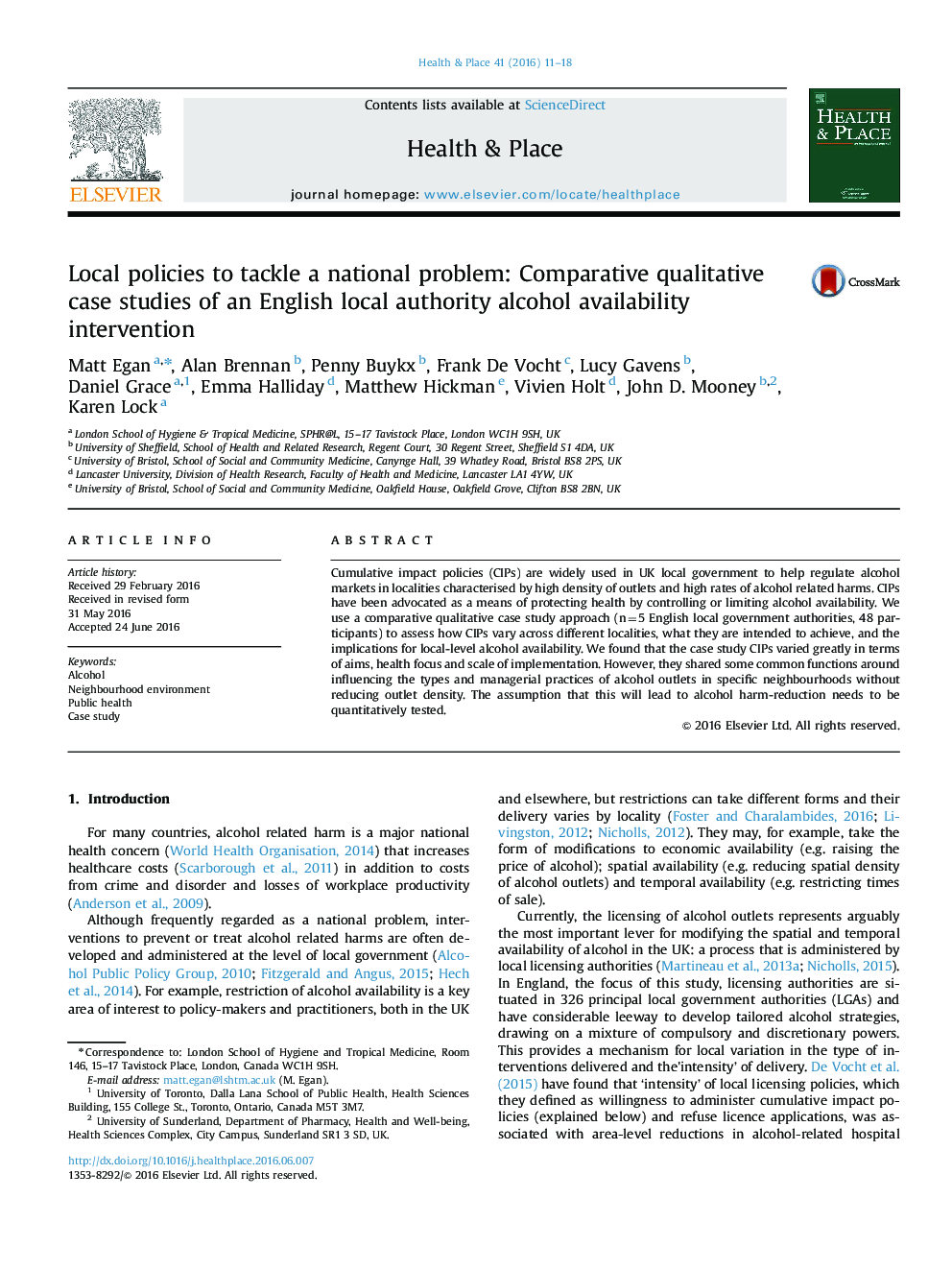| Article ID | Journal | Published Year | Pages | File Type |
|---|---|---|---|---|
| 1048561 | Health & Place | 2016 | 8 Pages |
•Cumulative impact policies (CIPs) are a means of regulating alcohol licensing.•CIPs involve locally tailored criteria for accepting or rejecting licence applications.•The CIPs we studied define and discourage types of alcohol outlet perceived to be harmful.•They also define and encourage alcohol outlets perceived to be not harmful.•The health impacts of modifying outlet type, rather than density, are not known.
Cumulative impact policies (CIPs) are widely used in UK local government to help regulate alcohol markets in localities characterised by high density of outlets and high rates of alcohol related harms. CIPs have been advocated as a means of protecting health by controlling or limiting alcohol availability. We use a comparative qualitative case study approach (n=5 English local government authorities, 48 participants) to assess how CIPs vary across different localities, what they are intended to achieve, and the implications for local-level alcohol availability. We found that the case study CIPs varied greatly in terms of aims, health focus and scale of implementation. However, they shared some common functions around influencing the types and managerial practices of alcohol outlets in specific neighbourhoods without reducing outlet density. The assumption that this will lead to alcohol harm-reduction needs to be quantitatively tested.
